Catholic Social Teaching
Catholic Social Teaching is ‘an aspect of the life and the thinking of the Catholic Church.’ It concerns what the Church has to say about social issues and the way in which Catholic faith should be lived out within society. These teachings are rooted in Scripture and especially in the teachings of Jesus found in the Gospels. At St Martin de Porres Catholic Primary School, Catholic Social Teaching, underpins our curriculum and day-to-day school life.
What we do isn't just because it feels like 'the right thing to do', it is because it is what we are taught to do by our Catholic faith.
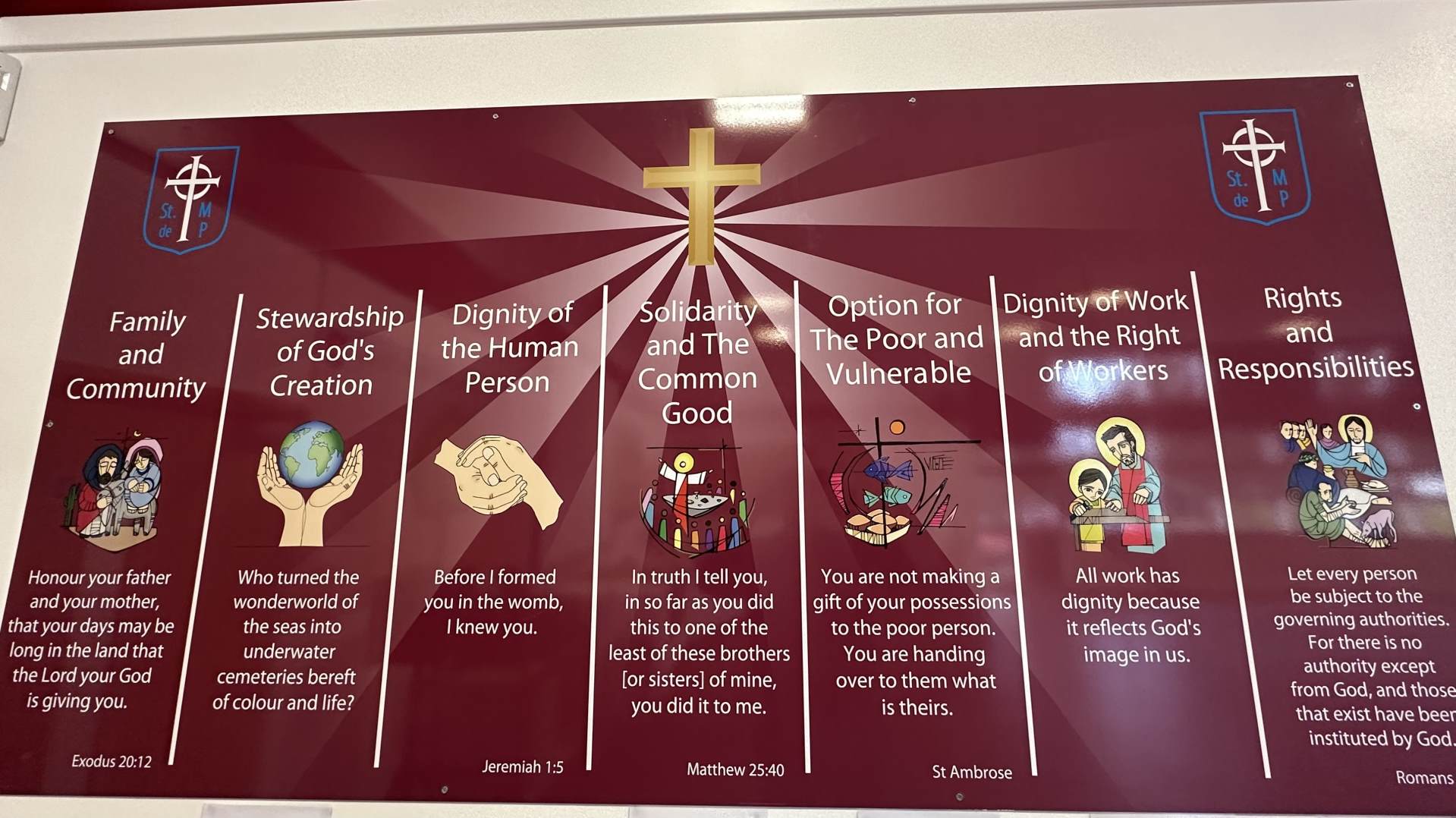
The main principles of Catholic Social Teaching are outlined below. As with all Catholic Social Teaching's, these principles relate to all people at a local, national and global level and the Church calls upon us to be aware and act upon injustices and inequalities.
At St Martin's, we concentrate on focus Catholic Social Teachings as shown below. The children and staff try and do something extra during the half-term to work towards the Catholic Social Teaching. Each week in our Celebration Assembly, a child from each class is awarded for their contributions.
Autumn 1 - Stewardship of God's Creation
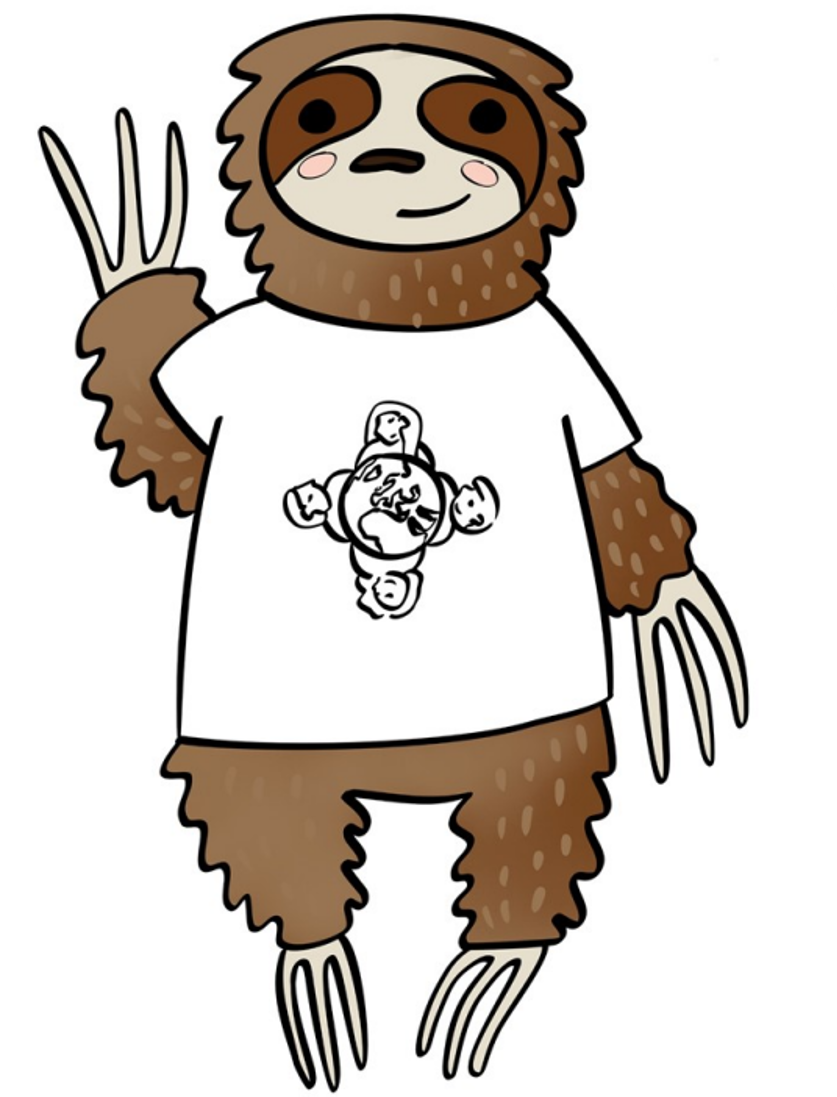 “The Lord God took the man and put him in the garden of Eden to till it and keep it.” Genesis 2:15
“The Lord God took the man and put him in the garden of Eden to till it and keep it.” Genesis 2:15
Stewardship is all about caring for the many gifts that God has given to us. These include our environment, our own talents and other resources. All living things are connected so we must use God’s gifts responsibly to meet the needs of everyone, now and in the future. The character associated with Stewardship is 'Sofia the Sloth'. The children will hear Sofia's story and find out that we need to be caring for the many gifts that God has given to us. These include our environment, our own talents and other resources.
In school we have been spending extra time in our school garden, our forest school, and picking litter around the school. We are actively trying to recycle paper and card, and turn off the lights in rooms that are unused. Classes have pledged to do even more to look after our common home this half -term.
Autumn 2 - Family & Community
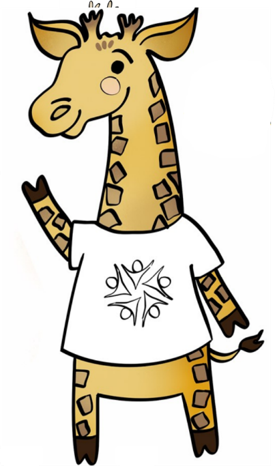 "The whole is greater than the part, but it is also greater than the sum of its parts.” Pope Francis, Evangelii Gaudium, 235.
"The whole is greater than the part, but it is also greater than the sum of its parts.” Pope Francis, Evangelii Gaudium, 235.
Our actions have an impact on everyone. When we make decisions, we should consider the good of all. We work to build a world where everyone, including the earth, can flourish. Ultimately, no one can truly flourish if another person is hungry, lost or abandoned, nor can humankind flourish while our common home is degraded and exploited for the good of the few.
The character associated with Family & Community is 'Chikondi the Giraffe'. The children will hear Chikondi's story which tells us that what we do affects everyone. When we make decisions, we should think about the good of everyone.
In school we took part in the Rudolph Run once again raising money for St Mary's Hospice. Our school community donated to the Christmas Toy Appeal, ran by the Birmingham Irish Association, and we raised money once again for the CAFOD Israeli-Palestinian Crisis Appeal. It was lovely to see lots of our families in school art workshops and fundraising events.
Spring 1 - Rights & Responsibilities
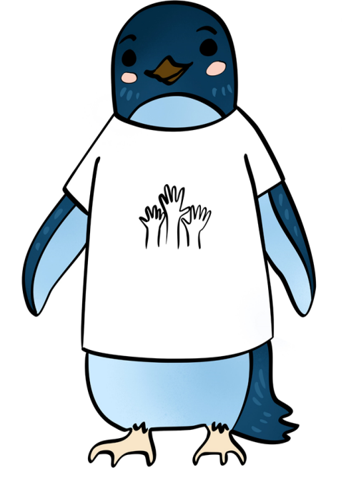 "When each separate part works as it should, the whole body grows and builds itself up through love.” Ephesians 4:16
"When each separate part works as it should, the whole body grows and builds itself up through love.” Ephesians 4:16
We all have the right and duty to participate fully in society. We live in community with others, growing together. We are called to be active participants in all that we do. We have a responsibility to be inclusive so that we allow all people to participate.
The character associated with Rights & Responsibilities is 'Penny the Penguin'. The children will hear Penny's story which tells us how much she loves it when a community comes together, and everyone takes part.
Spring 2 - Option for the Poor and Vulnerable
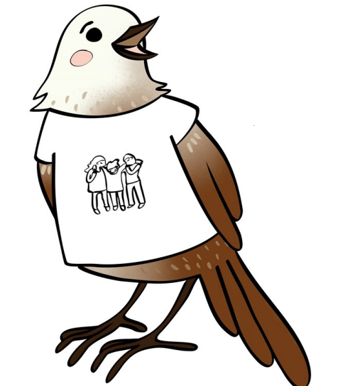 “Learn to do good; seek justice, rescue the oppressed, defend the orphan, plead for the widow.” Isaiah 1:17
“Learn to do good; seek justice, rescue the oppressed, defend the orphan, plead for the widow.” Isaiah 1:17
A preferential option for the poor means that we think first about the needs of those who are the most vulnerable. Jesus taught that when we feed the hungry, welcome the stranger, clothe the naked, look after the sick and visit those imprisoned, we are looking after Him. We refuse to accept the suffering of our brothers and sisters. No one should be beyond reach of the love and support they need.
The character associated with Option for the Poor and Vulnerable is 'Poppy the Pōpokotea'. The children will hear Poppy's story which tells us how she hatched without her parents, and relied on other birds feeding and looking after her.
Summer 1 - Dignity of Work and the Right of Workers
 "All who believed were together and had all things in common.” Acts 2:44-45
"All who believed were together and had all things in common.” Acts 2:44-45
God’s plan was for all people to share in the goods of this world. This means that no person should struggle to have the basic necessities of life such as food, shelter and clothing.
The character associated with Dignity of Work and the Right of Workers is 'DJ the Dolphin'. The children will hear DJ's story which tells us how he worked hard for his catch of fish, but it wasn't fairly shared between his pod of Dolphins.
Summer 2 - Dignity of the Human Person & Solidarity and the Common Good

 “... all of you are one in Christ Jesus.” Galatians 3:28
“... all of you are one in Christ Jesus.” Galatians 3:28
Being in solidarity is recognising others as our brothers and sisters and actively working for their good. We are connected to people and places all over the world. Each of us is made in God’s image. Every person has an innate human dignity no one can take away. Our common humanity requires that we respect and uphold the dignity of each and every individual. Everything else flows from this dignity.
The characters associated with Dignity of the Human Person & Solidarity and the Common Good are 'Shristi the Sunbear' and 'Luc the Deer'. The children will hear both Luc and Shristi's stories. Shristi tells the children what happened when a fire destroyed part of her forest and how she helped those who had lost everything. Luc tells the children about his brothers and sisters who are upset about being different, and how he reminds them that they are all made by God and have great value.
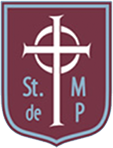 St Martin de Porres
St Martin de Porres 


